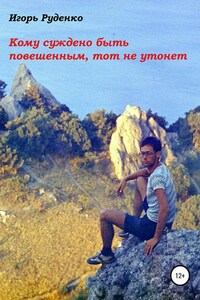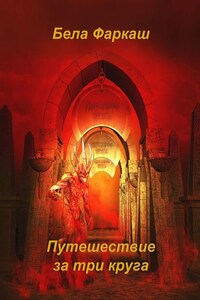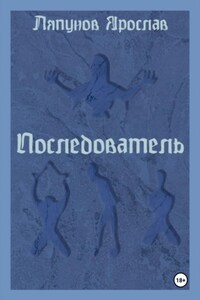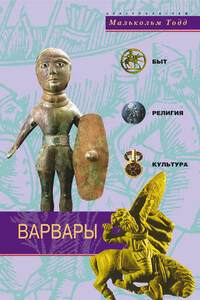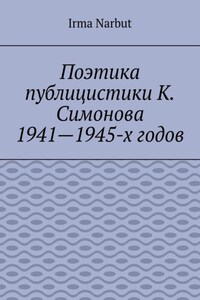When I drew nigh the nameless city I knew it was accursed. I was traveling in a parched and terrible valley under the moon, and afar I saw it protruding uncannily above the sands as parts of a corpse may protrude from an ill-made grave. Fear spoke from the age-worn stones of this hoary survivor of the deluge, this great-grandfather of the eldest pyramid; and a viewless aura repelled me and bade me retreat from antique and sinister secrets that no man should see, and no man else had dared to see..
Remote in the desert of Araby lies the nameless city, crumbling and inarticulate, its low walls nearly hidden by the sands of uncounted ages. It must have been thus before the first stones of Memphis were laid, and while the bricks of Babylon were yet unbaked. There is no legend so old as to give it a name, or to recall that it was ever alive; but it is told of in whispers around campfires and muttered about by grandams in the tents of sheiks so that all the tribes shun it without wholly knowing why. It was of this place that Abdul Alhazred the mad poet dreamed of the night before he sang his unexplained couplet:
That is not dead which can eternal lie,
And with strange aeons death may die.
I should have known that the Arabs had good reason for shunning the nameless city, the city told of in strange tales but seen by no living man, yet I defied them and went into the untrodden waste with my camel. I alone have seen it, and that is why no other face bears such hideous lines of fear as mine; why no other man shivers so horribly when the night wind rattles the windows. When I came upon it in the ghastly stillness of unending sleep it looked at me, chilly from the rays of a cold moon amidst the desert's heat. And as I returned its look I forgot my triumph at finding it, and stopped still with my camel to wait for the dawn.
For hours I waited, till the east grew grey and the stars faded, and the grey turned to roseate light edged with gold. I heard a moaning and saw a storm of sand stirring among the antique stones though the sky was clear and the vast reaches of desert still. Then suddenly above the desert's far rim came the blazing edge of the sun, seen through the tiny sandstorm which was passing away, and in my fevered state I fancied that from some remote depth there came a crash of musical metal to hail the fiery disc as Memnon hails it from the banks of the Nile. My ears rang and my imagination seethed as I led my camel slowly across the sand to that unvocal place; that place which I alone of living men had seen.
In and out amongst the shapeless foundations of houses and places I wandered, finding never a carving or inscription to tell of these men, if men they were, who built this city and dwelt therein so long ago. The antiquity of the spot was unwholesome, and I longed to encounter some sign or device to prove that the city was indeed fashioned by mankind. There were certain proportions and dimensions in the ruins which I did not like. I had with me many tools, and dug much within the walls of the obliterated edifices; but progress was slow, and nothing significant was revealed. When night and the moon returned I felt a chill wind which brought new fear, so that I did not dare to remain in the city. And as I went outside the antique walls to sleep, a small sighing sandstorm gathered behind me, blowing over the grey stones though the moon was bright and most of the desert still.
I awakened just at dawn from a pageant of horrible dreams, my ears ringing as from some metallic peal. I saw the sun peering redly through the last gusts of a little sandstorm that hovered over the nameless city, and marked the quietness of the rest of the landscape. Once more I ventured within those brooding ruins that swelled beneath the sand like an ogre under a coverlet, and again dug vainly for relics of the forgotten race. At noon I rested, and in the afternoon I spent much time tracing the walls and bygone streets, and the outlines of the nearly vanished buildings. I saw that the city had been mighty indeed, and wondered at the sources of its greatness. To myself I pictured all the spendours of an age so distant that Chaldaea could not recall it, and thought of Sarnath the Doomed, that stood in the land of Mnar when mankind was young, and of Ib, that was carven of grey stone before mankind existed.
All at once I came upon a place where the bed rock rose stark through the sand and formed a low cliff; and here I saw with joy what seemed to promise further traces of the antediluvian people. Hewn rudely on the face of the cliff were the unmistakable facades of several small, squat rock houses or temples; whose interiors might preserve many secrets of ages too remote for calculation, though sandstorms had long effaced any carvings which may have been outside.
Very low and sand-choked were all the dark apertures near me, but I cleared on with my spade and crawled through it, carrying a torch to reveal whatever mysteries it might hold. When I was inside I saw that the cavern was indeed a temple, and beheld plain signs of the race that had lived and worshipped before the desert was a desert. Primitive altars, pillars, and niches, all curiously low, were not absent; and though I saw no sculptures or frescoes, there were many singular stones clearly shaped into symbols by artificial means. The lowness of the chiselled chamber was very strange, for I could hardly kneel upright; but the area was so great that my torch showed only part of it at a time. I shuddered oddly in some of the far corners; for certain altars and stones suggested forgotten rites of terrible, revolting and inexplicable nature and made me wonder what manner of men could have made and frequented such a temple. When I had seen all that the place contained, I crawled out again, avid to find what the temples might yield.
Night had now approached, yet the tangible things I had seen made curiosity stronger than fear, so that I did not flee from the long moon-cast shadows that had daunted me when first I saw the nameless city. In the twilight I cleared another aperture and with a new torch crawled into it, finding more vague stones and symbols, though nothing more definite than the other temple had contained the room was just as low, but much less broad, ending in a very narrow passage crowded with obscure and cryptical shrines. About these shrines I was prying when the noise of a wind and my camel outside broke through the stillness and drew me forth to see what could have frightened the beast.






